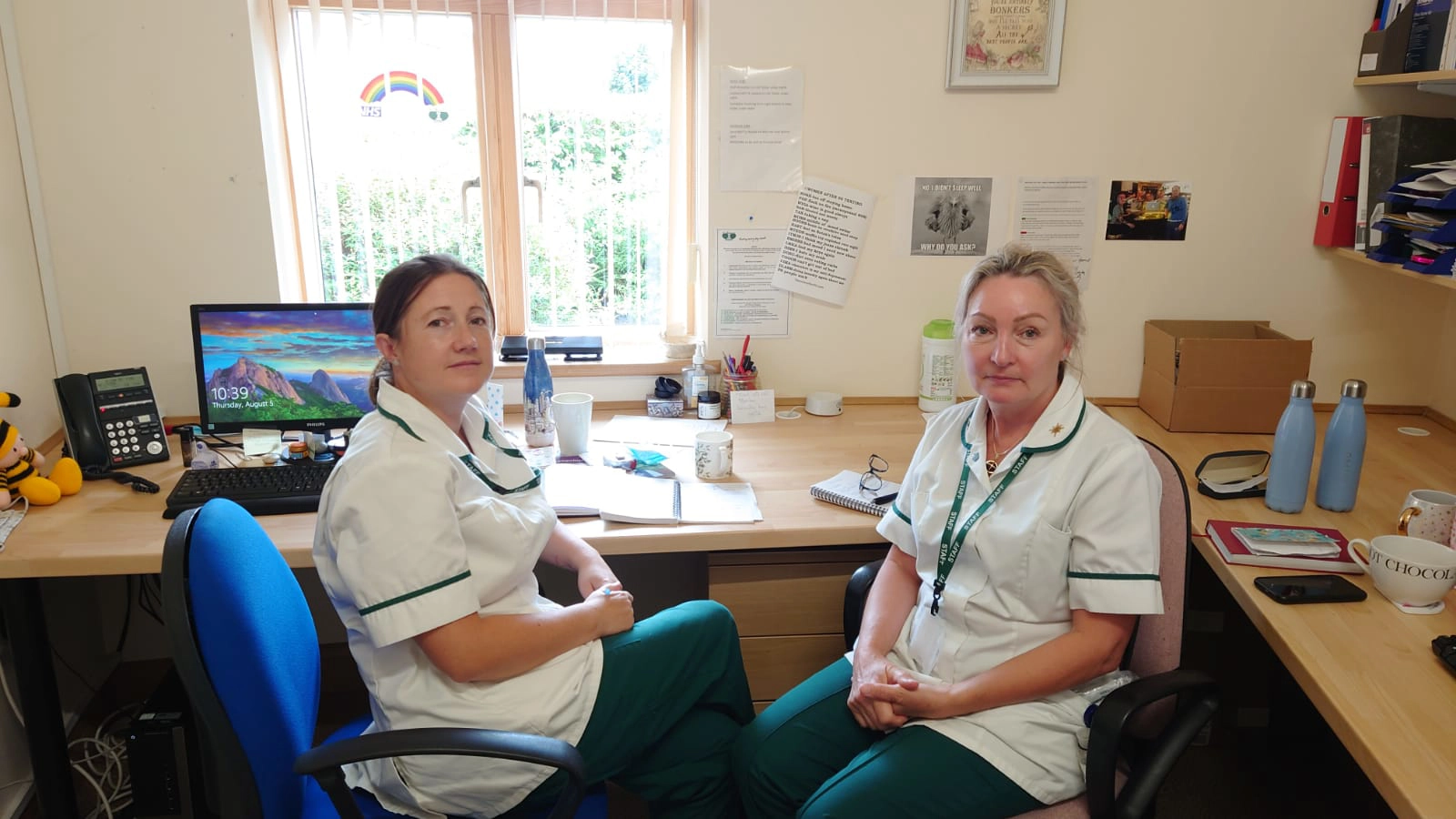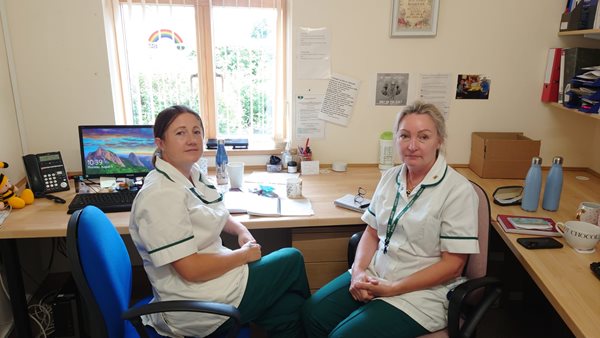
Operating as part of St. Rocco’s Vitality centre, our occupational therapy team, Jane and Sandra, play a vital role in improving both the independence and quality of life for those referred to us with a palliative diagnosis.
We recently spoke to them to find out more about their important work and how it fits in with the rest of the hospice’s care offerings. “We work with patients referred to us by the Warrington Integrated palliative care hub as well as those in our own in-patient unit,” they explained.
“Our approach is to look at where the patient has an area of difficulty, whether that is problems with washing and dressing or even if they are having difficulty reading. We can then focus on the tasks they can currently achieve and what they want to achieve going forward.”
Covers emotional and physiological support
Occupational therapy in palliative care aims to help patients achieve their optimum independence in activities that are important to them. Specific difficulties may include extreme fatigue, anxiety and shortness of breath due to advanced symptoms.
Jane and Sandra take a key role in organising and facilitating safe discharge and care at home, with the aim of achieving best quality of life and avoiding readmission wherever possible. This requires them to analyse and assess specific problems and provide a treatment program to help the patient remain independent.
As well as physical help the role of the occupational therapist also covers emotional and physiological support as Jane outlined. “The key question we always ask is ‘what would you like to do?’ We can then work with them to enhance what they are currently capable of doing as well as helping them to mange their symptoms. We can then work closely with our physiotherapy team to provide help in the areas of breathlessness and fatigue amelioration as well as relaxation.”
Prioritise the care needed
“We are also able to refer them to all the other care services in Warrington that can help improve their quality of life,” Jane continued. This can be a maze to those first seeking help, but we know our way around and keep up to date with all the improvements that are being made, so we can quickly signpost them to the right service, to ensure they get the right care package.
Asked what the main skill is they need to do their jobs well, Jane and Sandra both replied the same, “Being a detective! Many of the people we speak to are in a state of anxiety and as result, are not able to tell us what they feel and need. As part of our training, we have advanced communication skills to help overcome this. So, we can quickly understand, respond and prioritise the care they need to improve both their independence and quality of life.”



Share Article